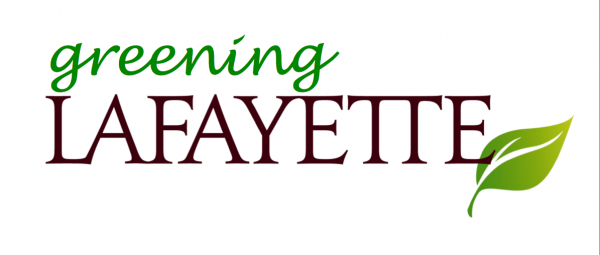One of the newest Lafayette plans to be more neighborly with nature doesn’t involve engineering or scientists peering at DNA strands through microscopes.
 In fact, it’s about as low tech as you can get. It’s a tree branch wrapped in newspaper jutting from a wooden crate. You’ll probably see it this coming semester positioned somewhere in Farinon Student Center or elsewhere on campus decorated with brochures and stickers and news on paper.
In fact, it’s about as low tech as you can get. It’s a tree branch wrapped in newspaper jutting from a wooden crate. You’ll probably see it this coming semester positioned somewhere in Farinon Student Center or elsewhere on campus decorated with brochures and stickers and news on paper.
The rustic display is the kiosk students in the senior capstone course in environmental studies and science chose for Greening Lafayette, a new push to involve everyone in campus wide environmental sustainability. In addition to more high-tech information dispersal brethren like social media and the internet, the tree branch will sprout announcements, like upcoming events and pamphlets about how to make a more ecofriendly Lafayette.
“As part of the Connected Communities program we wanted to devise Greening Lafayette to be focused on integrating student’s academic, social, and personal experiences,” says Miranda Wilcha ’16 (Stroudsburg, Pa.), a double major in environmental studies and anthropology & sociology.
At the center of the program are events scheduled in April designed to give students a glimpse of their impact on the environment. Lafayette in 2014 produced 842 tons of waste – about 550 pound per person on campus. Features in April will allow students to get up close and personal with their own garbage; waste audits and trash hurling contests are planned. Commons will compete against commons in environmentally-themed contests.

Members of the Greening Lafayette project
But that’s only the beginning of what the class hopes will become a permanent program at Lafayette.
“The students found it unfeasible and less than meaningful to follow the pattern of … merely devising a set of activities to run during one month,” says Ben Cohen, assistant professor of engineering studies. “Thus, they built a module that students in the first-year commons will begin in April, but one that will carry through as they move through their college careers.”
The sustainability module seeks to add to Lafayette’s Connected Communities program by “cultivating a sustainability ethos on campus,” says Kira Lawrence, associate professor and head of geology and environmental geosciences and co-chair of the environmental science and studies programs.
Twenty four paid student ECOreps will work with orientation leaders to help spearhead environmental programming. They’ll oversee a certification program, a set of individual environmental and sustainability experiences and efforts students can undertake and add to their resumes.
To obtain certification, students undertake learning and service activities focused on the environmental system food, water, waste, and energy – offering up reflections of what they’ve learned and how they’ve become better stewards of the environment.
The new module includes a plan for incoming freshmen to take three-day pre-orientation trips with environmental themes. Organizers hope it becomes a tradition.
At orientation, first-year students will also receive a sustainability kit, assembled by the ECOreps and orientation leaders, which will include a reusable water bottle, a spork, a campus sustainability guide and Greening Lafayette and LaFarm stickers.
 In fact, it’s about as low tech as you can get. It’s a tree branch wrapped in newspaper jutting from a wooden crate. You’ll probably see it this coming semester positioned somewhere in Farinon Student Center or elsewhere on campus decorated with brochures and stickers and news on paper.
In fact, it’s about as low tech as you can get. It’s a tree branch wrapped in newspaper jutting from a wooden crate. You’ll probably see it this coming semester positioned somewhere in Farinon Student Center or elsewhere on campus decorated with brochures and stickers and news on paper.
1 Comment
Comments are closed.